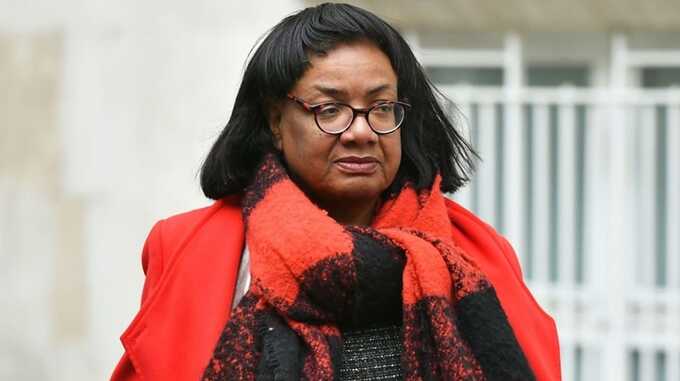

Black MP Bernie Grant also spied on, with secret Met reports claiming he made ‘inflammatory’ speeches
Undercover police officers compiled numerous secret reports on Diane Abbott while she was campaigning against racism, a public inquiry has heard.
Abbott, who has been an MP for 37 years, has criticised the activities of the undercover officers as being racist and unjustified.
The inquiry was also told that the undercover officers spied on another prominent black politician, Bernie Grant, after he had been elected to parliament, claiming that he was making “inflammatory” and “cynical” speeches that featured “conspiracy theories”.
Many of the reports referred to Grant’s presence at events at which his constituents were campaigning about injustices caused by the police such as deaths, the inquiry was told.
The inquiry, which is being led by the retired judge Sir John Mitting, is examining the conduct of about 139 undercover officers who spied on more than 1,000 political groups since 1968.
One of the issues in front of the inquiry is the extent to which the undercover officers monitored elected politicians. A round of hearings this month is concentrating on the activities of the police spies between 1983 and 1992.
On Wednesday, Owen Greenhall, a barrister representing Abbott, said documents disclosed to the inquiry revealed that “undercover officers reported on numerous events at which she spoke” during this period. In 1987 Abbott had become the first black woman ever to be elected to parliament. The former shadow home secretary is standing for Labour in Hackney North and Stoke Newington in London on Thursday.
Greenhall said that Abbott featured “in reports as a speaker at events held by anti-racism campaigns. Many of the intelligence reports into groups campaigning for racial justice relate to entirely open, transparent political and campaigning events.”
He said that the undercover officers’ infiltration of “campaigns around the deaths of black and Asian people, or the activities of black MPs, uncomfortably mirror the very complaints that campaigners were making about the disproportionate policing of black people and the lack of respect for the rights of black and Asian communities. These were groups or activists campaigning about the very issue of police racism and police accountability.”
One undercover officer was sent to Stoke Newington and Hackney in 1983 and told to “familiarise himself … with whatever subversive undercurrent he could detect”.
Greenhall said: “This explicitly undirected deployment is symptomatic of a racist assumption that areas of London where black-led campaigns for racial justice were growing should be viewed with suspicion.”
The inquiry also heard that the police maintained a secret file on Grant, another pioneering MP who was elected to parliament in 1987.
Drawing on documents released by the inquiry, Sharon Grant, his widow, said that 28 reports compiled by the undercover officers “directly mention” Grant, who was the MP for Tottenham, north London. Nine of them had been filed by an undercover officer, Kevin Douglas, who spied on groups in Haringey, north London between 1987 and 1991.
Grant said the reports went “beyond reporting his mere presence at events, but purport to analyse the content of his speeches and his sincerity”. She said one report described him as embarking “on a tour of conspiracy theories” and called him “cynical”. Many reports were passed to the Security Service MI5, she added.
Peter Francis, a former undercover officer who became a whistleblower, has previously revealed that he read secret police files on 10 MPs, after they had been elected to the House of Commons, during the 1990s. They included Harriet Harman, Jack Straw and Peter Hain.
On Monday, the Met apologised for using undercover officers to spy on anti-racism campaigns that were seeking to hold police to account for injustices during the 1980s and 1990s.